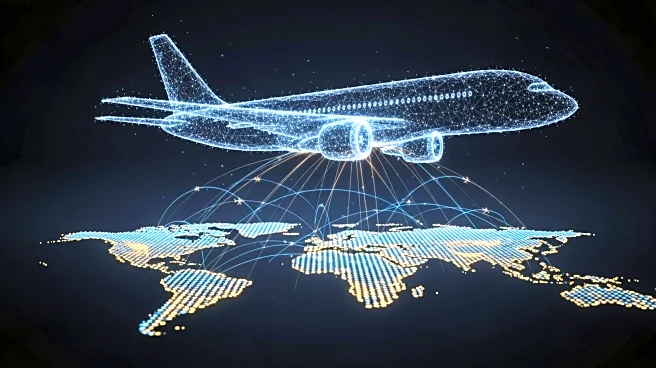What's Happening?
Upgraded Points has conducted a comprehensive study analyzing over 40,000 flights on the busiest U.S. domestic routes to determine the best days to fly during the 2025 holiday season. The study focuses
on Thanksgiving and Christmas travel, revealing significant fare increases during these periods. The analysis utilized Google Flights fare data, comparing a control week in early November with the 10-day periods surrounding Thanksgiving and Christmas. The study aimed to measure average holiday price increases, identify airlines with the most significant premiums, and determine which specific days within each holiday window were the most and least expensive. During the Thanksgiving travel window, the average one-way fare increased from $178 to $276, representing a 55% rise. Price changes varied significantly among airlines, with Frontier Airlines experiencing a 163% increase and JetBlue Airways a 99.6% increase. Christmas travel saw more uniform fare increases, with Frontier Airlines again leading with a 199.4% increase.
Why It's Important?
The findings from the Upgraded Points study highlight the importance of strategic planning for holiday travel, as significant fare increases can impact travelers' budgets. Understanding these trends allows travelers to make informed decisions about when to book flights and which airlines to choose, potentially saving money during peak travel periods. The study's insights are particularly relevant for consumers looking to manage travel expenses amidst rising costs. Airlines with flexible fare policies, like Southwest Airlines, which saw a modest 28% increase, may offer more affordable options for travelers. This information is crucial for the travel industry, as it can guide marketing strategies and pricing models to accommodate consumer demand during the holiday season.
What's Next?
Travelers are likely to adjust their booking strategies based on the study's findings, opting for less expensive travel days and airlines with lower fare increases. Airlines may respond by offering promotions or adjusting pricing models to attract budget-conscious travelers. The travel industry could see increased competition among airlines to capture market share during the holiday season. Additionally, travel agencies and platforms might leverage these insights to offer tailored packages that align with consumer preferences for cost-effective travel options.
Beyond the Headlines
The study's implications extend beyond immediate travel decisions, potentially influencing long-term consumer behavior and airline pricing strategies. As travelers become more aware of fare fluctuations, there may be a shift towards more flexible travel planning and increased use of fare comparison tools. Airlines might invest in technology to better predict demand and optimize pricing, enhancing their competitive edge. The focus on strategic travel planning could also lead to increased demand for travel insurance and flexible booking options, reflecting a broader trend towards risk management in travel.









